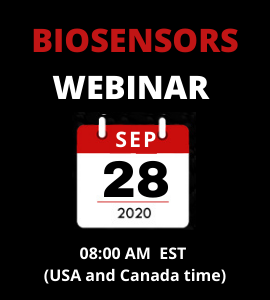
Rhea Patel
PhD Student, Indian Institute of Technology Bombay, India
Title: D Detect: Development of µTAS vitamin D detection technique
Biography
Biography: Rhea Patel
Abstract
Changing lifestyles has rendered human beings more prone to dietary deficiencies. One of such prevalent deficiencies is vitamin D, a vitamin extremely important for the bone homeostasis. The deficit of vitamin D has been observed in individuals ranging over all age groups however, the population under threat involves, infants, pregnant women, women in post-menopausal age, old age people, and individuals suffering from autoimmune bone related disorders. Thus, the detection of vitamin D has become the 5th most popular testing in diagnostics accounting for approximately $ 605.9 million worldwide in the year of 2018.
Currently, vitamin D testing is being done by the use of techniques that involve sophisticated instrumentation and skilled labor thus restricting the feasibility of testing to modernized diagnostic laboratories in urban areas. In order to make the testing available to the population in the developing countries, we have designed a cost-effective and user-friendly solution in the form of an enzyme coupled impedance based portable sensor for the detection of vitamin D.
The device is based on the in-vivo activation process of vitamin D that takes place via oxidation of 25-dihydroxyvitamin D3 to 1α,25-dihydroxyvitamin D3 [1α,25(OH)2D3] by enzyme CYP27B1. The D detect involves electrode immobilized with CYP27B1 that reacts with vitamin D in the blood sample and the interaction leads to oxidation of vitamin D. The interaction leads to a change in impedance that is being amplified and detected with the help of portable potentiostat. The D detect serves as a simple and cost effective point of care diagnostic for vitamin D.

